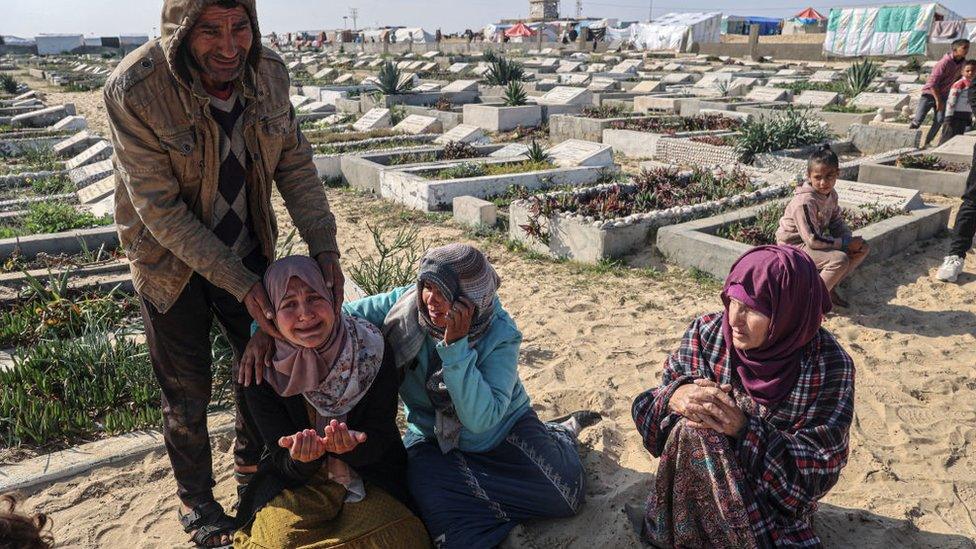Israel Gaza: Biden hopes to see ceasefire by the start of Ramadan
- Published
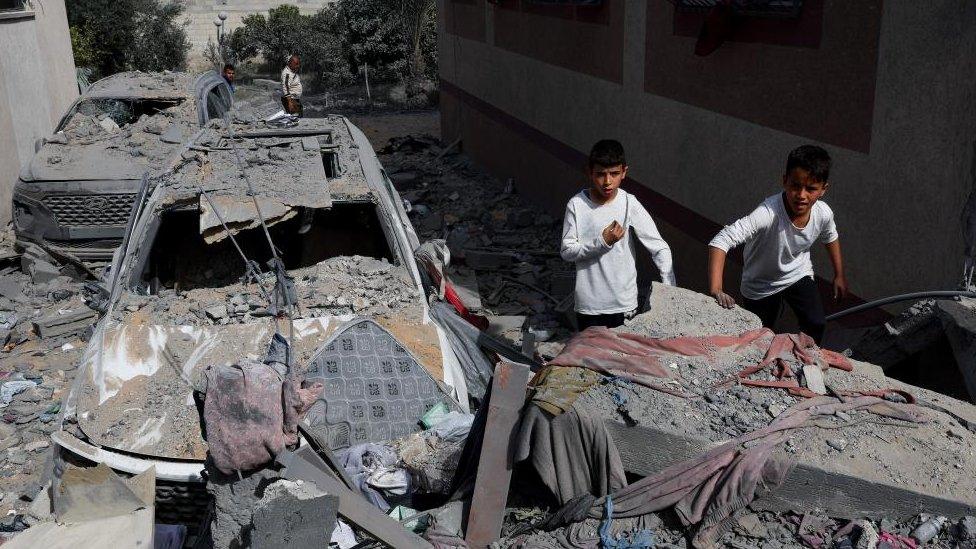
Two boys seen amid the rubble of a collapsed house in Gaza on Friday
US President Joe Biden has said he hopes to see a deal for a ceasefire in the Israel-Gaza War in time for the start of Ramadan.
The Muslim holy month, during which members of the faith fast from dawn to sunset, will begin on 10 or 11 March.
Asked whether he expected a deal by then, Mr Biden said: "I'm hoping so. We're still working real hard on it."
It comes amid tense ceasefire negotiations and as pressure builds on Mr Biden to help curtail the conflict.
A proposed deal would see a 40-day pause in all military operations from the start of Ramadan as well as an increased flow of aid into Gaza, a source close to the talks told Reuters news agency.
It would also reportedly include an agreement for the release of Palestinian prisoners in exchange for Israeli hostages at a ratio of 10 to one.
The exact start of Ramadan is marked by the first sighting of the crescent Moon, so can vary from place to place.
Calls for action to alleviate the humanitarian crisis in Gaza intensified on Thursday after more than 100 people were killed as crowds rushed around aid lorries delivering food.
Hamas, which governs Gaza, accused Israel of firing at civilians, but Israel said most had died in a stampede after it fired warning shots.
Following the incident, President Biden announced plans to airdrop aid into Gaza, saying: "Innocent people got caught in a terrible war, unable to feed their families. And you saw the response when they tried to get aid.
"But we need to do more, and the United States will do more."
Around a quarter of the population of Gaza is currently at risk of famine, according to UN figures, but the planned air drops have been criticised by aid groups as costly and insufficient.
"Oxfam does not support US airdrops to Gaza, which would mostly serve to relieve the guilty consciences of senior US officials whose policies are contributing to the ongoing atrocities and risk of famine in Gaza," the charity group said on Friday.
"While Palestinians in Gaza have been pushed to the absolute brink, dropping a paltry, symbolic amount of aid into Gaza with no plan for its safe distribution would not help and be deeply degrading to Palestinians," Oxfam said, adding that the US should instead work to "cut the flow of weapons to Israel".
UN agency chief Philippe Lazzarini said the drops were "a last-resort, extraordinarily expensive way of providing assistance" and not the answer to problems in Gaza.
"The real answer is: Open the crossings and bring convoys and medical assistance into the Gaza Strip," he added.
White House National Security Council Spokesman John Kirby said that the US would continue to work toward bringing aid to Gaza by land and sea as well.
On Thursday, Jordanian air force pilots dropped 33 tonnes of medical supplies and food into Gaza.
According to the Washington Post, external, Jordanian planes have also dropped aid provided by the US and the UK, while planes from France, Egypt and the United Arab Emirates have participated in similar operations.
The Israeli military launched a large-scale air and ground campaign to destroy Hamas - which is proscribed as a terrorist organisation by Israel, the UK and others - after the group's gunmen killed about 1,200 people in southern Israel on 7 October and took 253 back to Gaza as hostages.
- Published1 March 2024
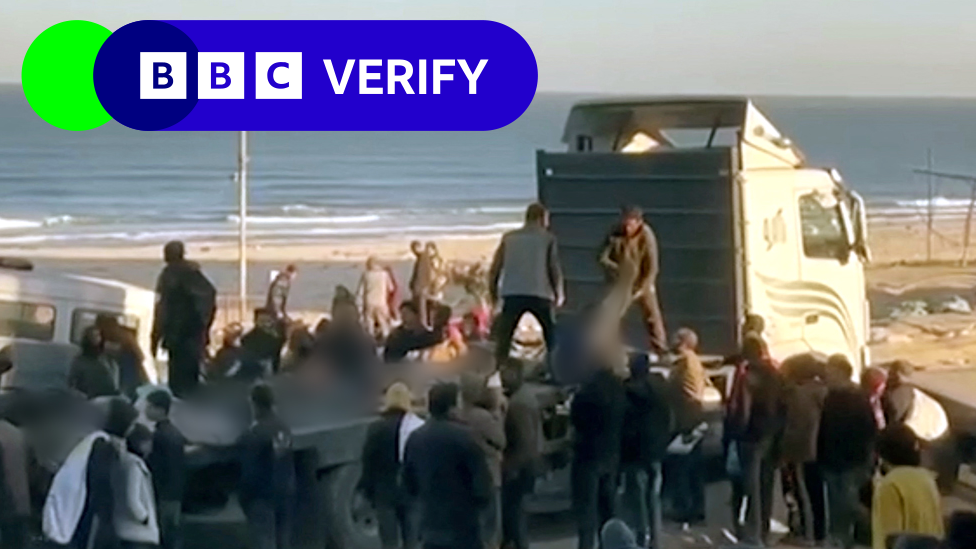
- Published1 March 2024
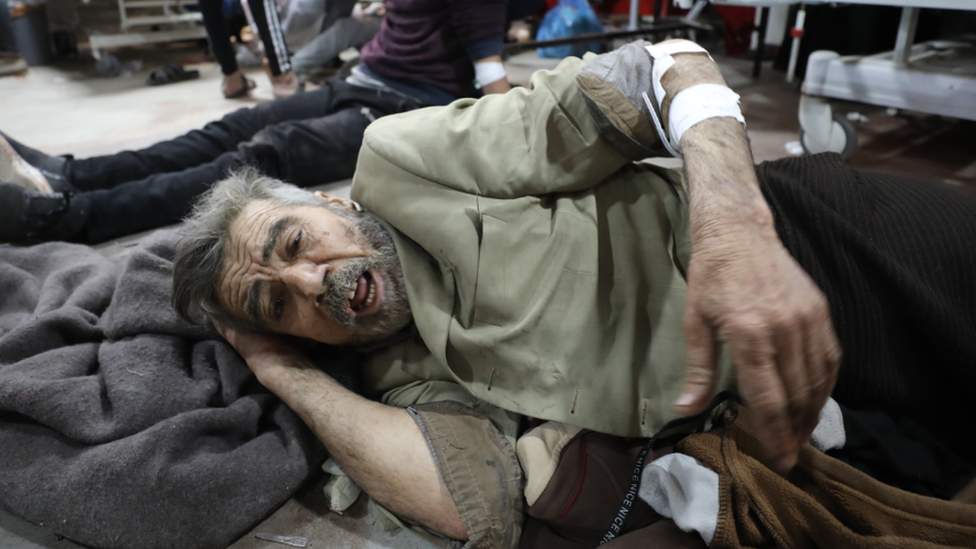
- Published10 February 2024
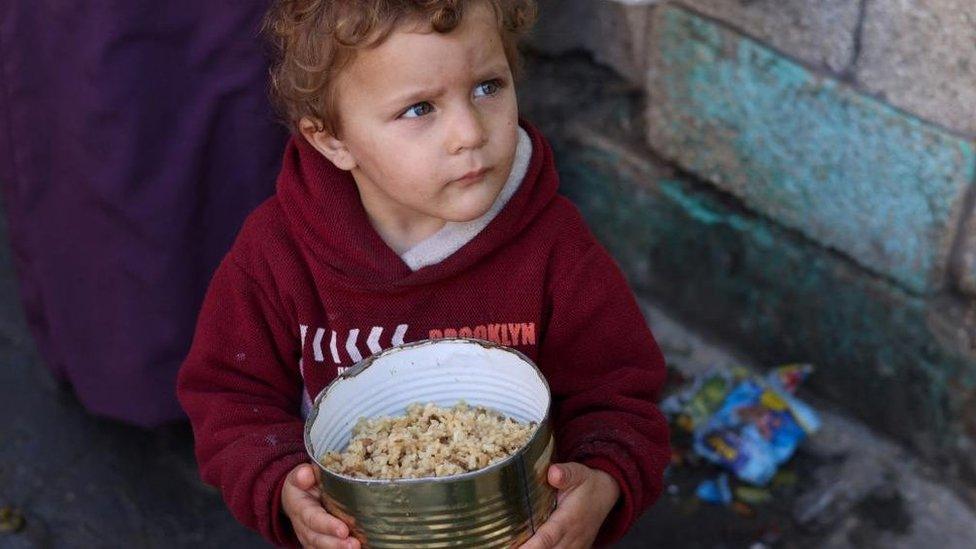
- Published1 March 2024
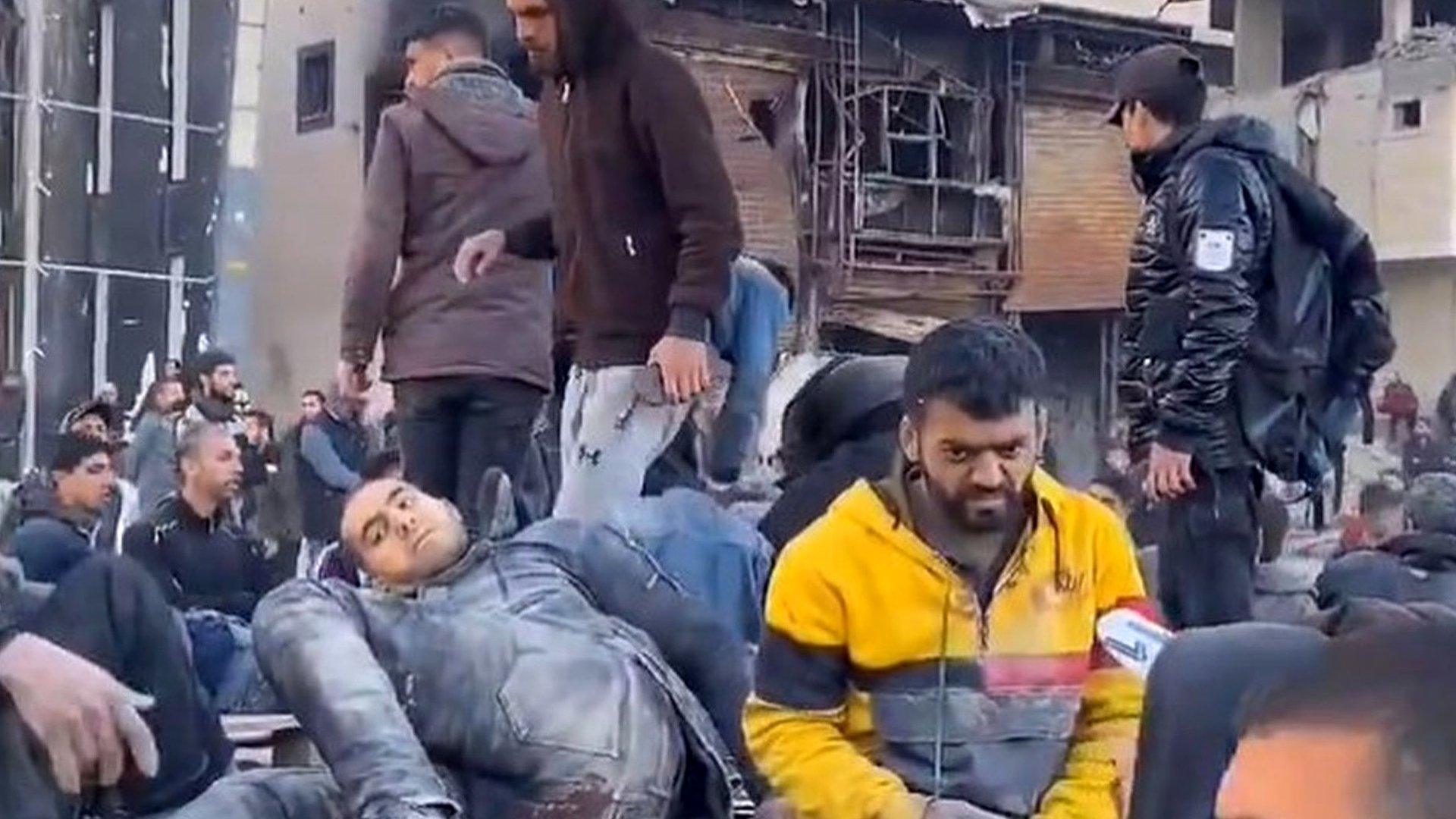
- Published20 February 2024
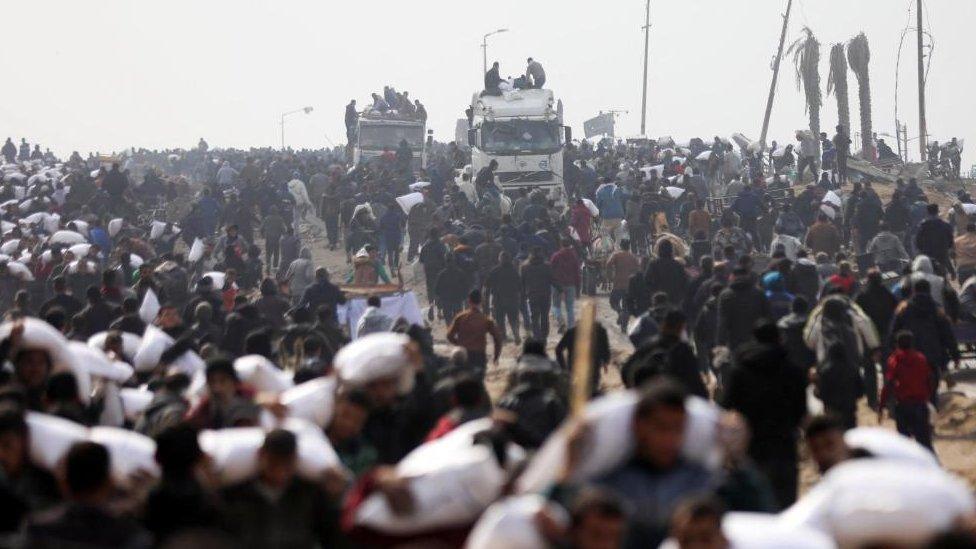
- Published29 February 2024
